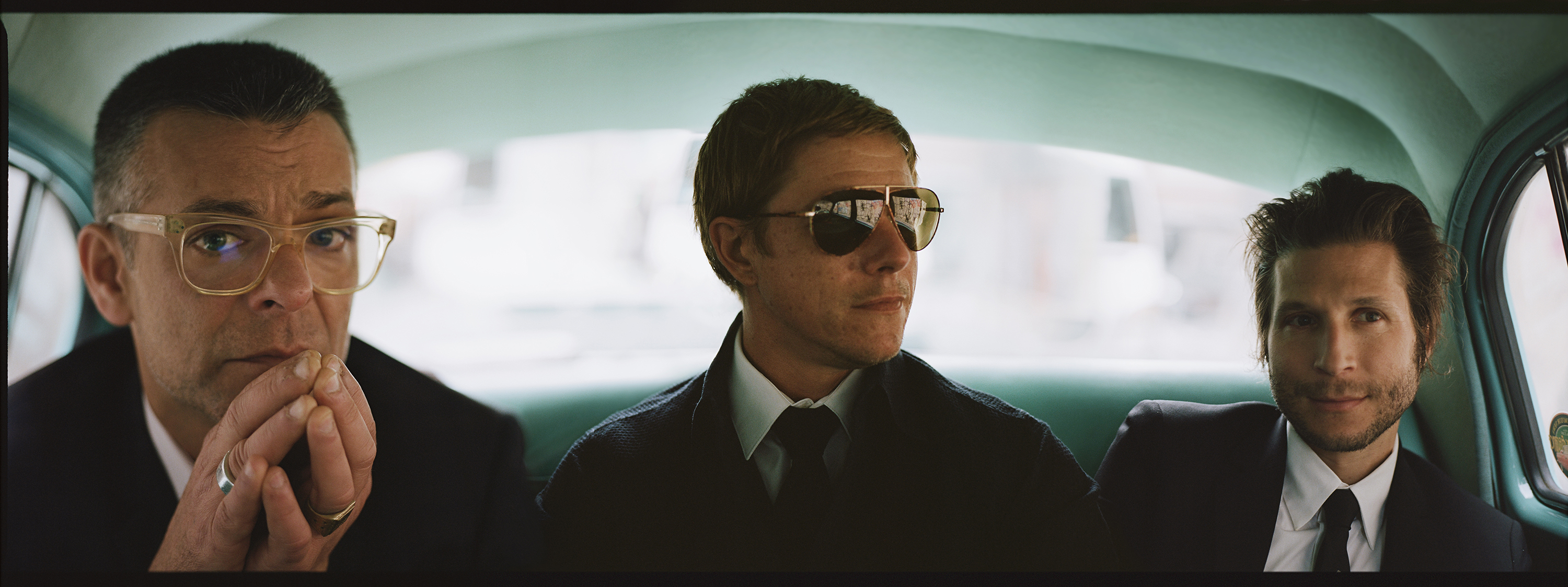My Page: Interpol’s Paul Banks

Surf City: Interpol’s frontman finds a new, unexpected way to live life on the edge.
I learned how to surf on the worst beach possible. I was always into the ocean; I just liked catching waves with my body so I started visiting a beach in Panama that had great waves and I would body surf. I wound up moving to that beach eight or nine years ago and decided: “I’m going to take up surfing.” I had a local teach me—he was stoked because I gave him a surfboard in exchange for lessons.
It’s a very disorganized beach in the middle of nowhere, but, once in a while, there will be world-class conditions. They call it a “beach break.” You’re not at a point, and you’re not in a bay; it’s just the Pacific Ocean meeting the land, and it gets a little hairy. There are big waves constantly, but it’s not those great, peeling waves that you’ll find in places where the topography of the land is making it peel and then things go kaboom! It’s called a closeout wave—once it gets to a certain size, it’s like a giant pipe for a hundred yards. You can drop into it, but you’re not gonna get out of it. Sometimes it’s really great; sometimes it’s too much when it gets too big and heavy. You could fuckin’ die. I have a couple of bros that really surf—I’m still a “kook,” but part of that is because I only have experience on this one beach. I’ve never gone somewhere to surf an easy wave.
When you’re learning to surf, you put the board on the ground and simulate the pop-up motion, and that’s all you can practice before getting in the water. Then, once you get in, there’s a bunch of crazy waves and it’s insanity out there. Also, a beach break often won’t have a channel where you can paddle out and catch a wave. At this beach, you have to duck dive 40 times to get past the break. When I was learning, my teacher would periodically check back to see if I was still there—or drowning—just smiling and thinking, “Aw, come on!” It took me two weeks to paddle out past the break, and I’m a very strong swimmer to begin with. People always say, “I learned how to surf on the first day,” and I think, “What the fuck are you talking about?” Then I realize, “Oh yeah, you can get on a longboard and walk out in the waist-high water and have someone push you on a wave and go surfing.” When you duck dive 40 times and swim through whitewater, it’s no pain, no gain.
So I’m excellent at paddling and duck diving, but surfers know that those qualities don’t actually matter. I’ve spent a lot of time in the water, but less time on the face of the waves—I can’t do aerials, and I’m not throwing spray, but I surf. One tendency that I learned to watch—and this is the dangerous thing about talking about surfing—is that you can betray yourself as being a kook because real surfers downplay every aspect of their surfing. It’s impressive. They have that kind of cool that you can’t imitate.
A lot of people have drowned at that beach I learned to surf at because it has really bad rips and crazy currents. I’ve seen a bunch of people pulled out of the water, and three or four years ago, I actually saw someone die. I don’t think he was in the rip, though; he may have had a heart attack. He was older. It’s tragic that he lost his life, but the truly tragic shit that you hear about is when people drown because they don’t know the ocean. They get in for a nice swim, and then they get sucked out. And that happens all the time.
But, for me, surfing is the most fun, absolutely all- encompassing hobby and joy. I even enjoy waiting for waves—I’ve had a dolphin family come in and circle me and my buddy. They had a baby with them, and I thought it was so funny because I felt like the baby was saying, “Oh, I’m scared,” but the mom was like, “Dude, they can’t swim for shit. Don’t worry.”
I’d go so far as to say that I’m addicted to the physical exertion of surfing. I never understood extreme sports, but I did understand complete exhaustion through excursion. If you’re in the ocean with a wave about to close out on your head and there’s no duck dive deep enough to deal with the wave that’s about to close, then you don’t know if you’re gonna die or not. Your body engages in a way that an ancient man may have felt when he was running from a panther and trying to scramble up a tree to survive. That part of you gets triggered. And once that was awake in me, I realized how much I had missed it.
Interpol released their sixth studio album, and first in four years, Marauder, in August via Matador. The LP was produced by longtime Flaming Lips/Mercury Rev collaborator Dave Fridmann. This article originally appears in the October/November 2018 issue of Relix. For more features, interviews, album reviews and more, subscribe here.



















